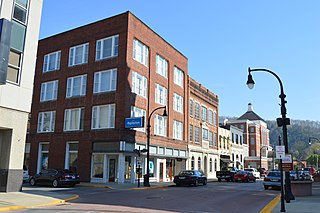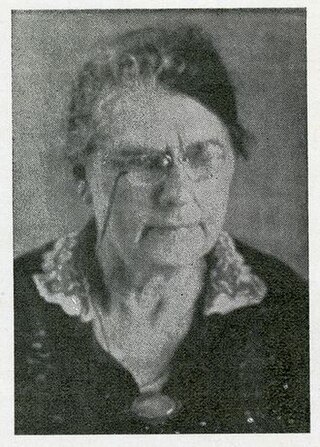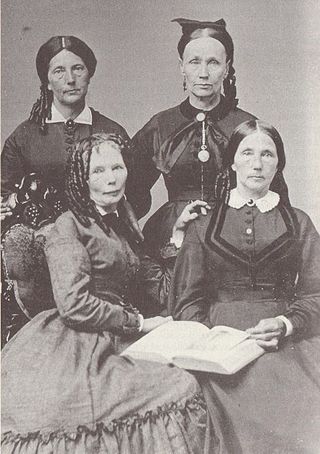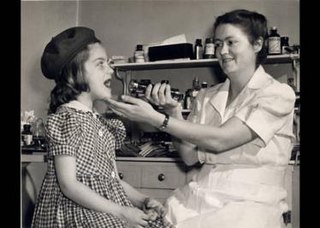Related Research Articles

Berea College is a private liberal arts work college in Berea, Kentucky. Founded in 1855, Berea College was the first college in the Southern United States to be coeducational and racially integrated. The college provides a work-study grant that covers the remaining tuition fees after subtracting the total sum a student received from Pell Grant, other grants, and scholarships. Berea's primary service region is southern Appalachia but students come from more than 40 states in the United States and 70 other countries. Approximately one in three students identify as people of color.

Pike County is a county in the U.S. state of Kentucky. As of the 2020 Census, the population was 58,669. Its county seat is Pikeville. The county was founded in 1821. With regard to the sale of alcohol, it is classified as a moist county–– a county in which alcohol sales are prohibited, but containing a "wet" city. There are three cities in the county, Pikeville, Elkhorn City, and Coal Run Village, where package alcohol sales are legal.

Pikeville is a home rule-class city in and the county seat of Pike County, Kentucky, United States. The population of Pikeville was 7,754 as of the 2020 U.S. Census. Pikeville serves as a regional economic, educational and entertainment hub for the surrounding areas of eastern Kentucky, Virginia and West Virginia. It is home to the University of Pikeville and the Pikeville Cut-Through, the second-largest earthmoving project in the western hemisphere.

The Hatfield–McCoy Feud involved two American families of the West Virginia–Kentucky area along the Tug Fork of the Big Sandy River from 1863 to 1891. The Hatfields of West Virginia were led by William Anderson "Devil Anse" Hatfield, while the McCoys of Kentucky were under the leadership of Randolph "Ole Ran'l" McCoy. Those involved in the feud were descended from Joseph Hatfield and William McCoy (born c. 1750). The feud has entered the American folklore lexicon as a metonym for any bitterly feuding rival parties.
Berniece Iona Terry Hiser was an American writer and schoolteacher.
Harry Monroe Caudill was an American author, historian, lawyer, legislator, and environmentalist from Letcher County, in the coalfields of southeastern Kentucky.

Jesse Hilton Stuart was an American writer, school teacher, and school administrator who is known for his short stories, poetry, and novels as well as non-fiction autobiographical works set in central Appalachia. Born and raised in Greenup County, Kentucky, Stuart relied heavily on the rural locale of northeastern Kentucky for his writings. Stuart was named the poet laureate of Kentucky in 1954.

The Big Sandy Expedition was an early campaign of the American Civil War in Kentucky that began in mid-September 1861 when Union Brig. Gen. William "Bull" Nelson received orders to organize a new brigade at Maysville, Kentucky and conduct an expedition into the Big Sandy Valley region of Eastern Kentucky and stop the build-up of Confederate forces under Col. John S. Williams. This was done in three phases. From September 21 to October 20, 1861, Nelson assembled a brigade of 5,500 Union volunteers from Ohio and Kentucky. On October 23, the southern prong secured Hazel Green and the northern prong West Liberty. The two prongs were consolidated at Salyersville and they began the final phase on October 31. This led to the Battle of Ivy Mountain on November 8 and the withdrawal of Confederate forces from Pikeville (Piketon) on November 9, 1861.
Harlan Hubbard was an American artist and writer, known for his simple lifestyle.
The Little Bull-Calf is an English Romani fairy tale collected by Joseph Jacobs in More English Fairy Tales.

Gurney Norman is an American writer documentarian, and professor.
John B. Stephenson was a sociologist and scholar of Appalachia, a founder of the Appalachian Studies Conference, and president of Berea College from 1984 to 1994.

Appalachian Volunteers (AV) was a non-profit organization engaged in community development projects in central Appalachia that evolved into a controversial community organizing network, with a reputation that went "from self-help to sedition" as its staff developed from "reformers to radicals," teaching things from Marx, Lenin and Mao, in the words of one historian, in the brief period between 1964 and 1970 during the War on Poverty.

Katherine Rebecca Pettit was an American educator and suffragist from Kentucky who contributed to the settlement school movement of the early 20th century.

Paul Garrett Blazer was president and CEO of Ashland Oil and Refining Company located in Ashland, Kentucky.
The history of the Baptist movement in the United States state of Kentucky begins around 1775, when a few Baptist preachers visited from Virginia. Virginians John Taylor, Joseph Reading, and Lewis Lunsford all visited in 1779, but returned to Virginia. Baptists began to settle around 1781, the first Baptist congregation of 18 people being left by John Garrard. Rev. Lewis Craig led several hundred people of "The Travelling Church", including several preachers, to Gilbert's Creek from Spotsylvania County, Virginia, arriving the first week of December 1781. Cedar Fork Church was founded in 1782.
The Day Law mandated racial segregation in educational institutions in Kentucky. Formally designated "An Act to Prohibit White and Colored Persons from Attending the Same School," the bill was introduced in the Kentucky House of Representatives by Carl Day in January 1904, and signed into law by Governor J.C.W. Beckham in March 1904. As well as prohibiting students of color from attending the same school as white students, the law prohibited individual schools from operating separate black and white branches within 25 miles of each other.

Delia Ann Webster was an American teacher, author, businesswoman and abolitionist in Kentucky who, with Calvin Fairbank, aided many slaves, including Lewis Hayden, his wife Harriet, and their son Joseph to escape to Ohio. She was convicted and sentenced to two years in the Kentucky State Penitentiary in Frankfort for aiding the Haydens' escape, but pardoned after two months.

Louise Gilman Hutchins (1911–1996) was president and board director for the Mountain Maternal Health League in Berea, Kentucky for 47 years.
E. Belle Mitchell Jackson was an American educator, activist, small business owner, and abolitionist from Danville, Kentucky. Mitchell was one of the founders of the Colored Orphans Industrial Home in Lexington, Kentucky.
References
- ↑ ""Leonard Ward Roberts"". Pine Mountain School Settlement Collections. Retrieved 27 September 2023.
- ↑ "Leonard W. Roberts". Pine Mountain Settlement School Collections. Retrieved 27 September 2023.
- ↑ McCoy, Truda (1976). The McCoys: Their Story. Pikeville, KY: Preservation Council Press. p. vii. ISBN 0-916814-00-9.
- "Leonard W. Roberts" in The Kentucky Encyclopedia (Lexington, KY: The University Press of Kentucky), 1992. ISBN 0-8131-1772-0
- Jones, Loyal. 2017. My Curious and Jocular Heroes: Tales and Tale-Spinners from Appalachia. Urbana: University of Illinois Press. ISBN 978-0-252-08267-2